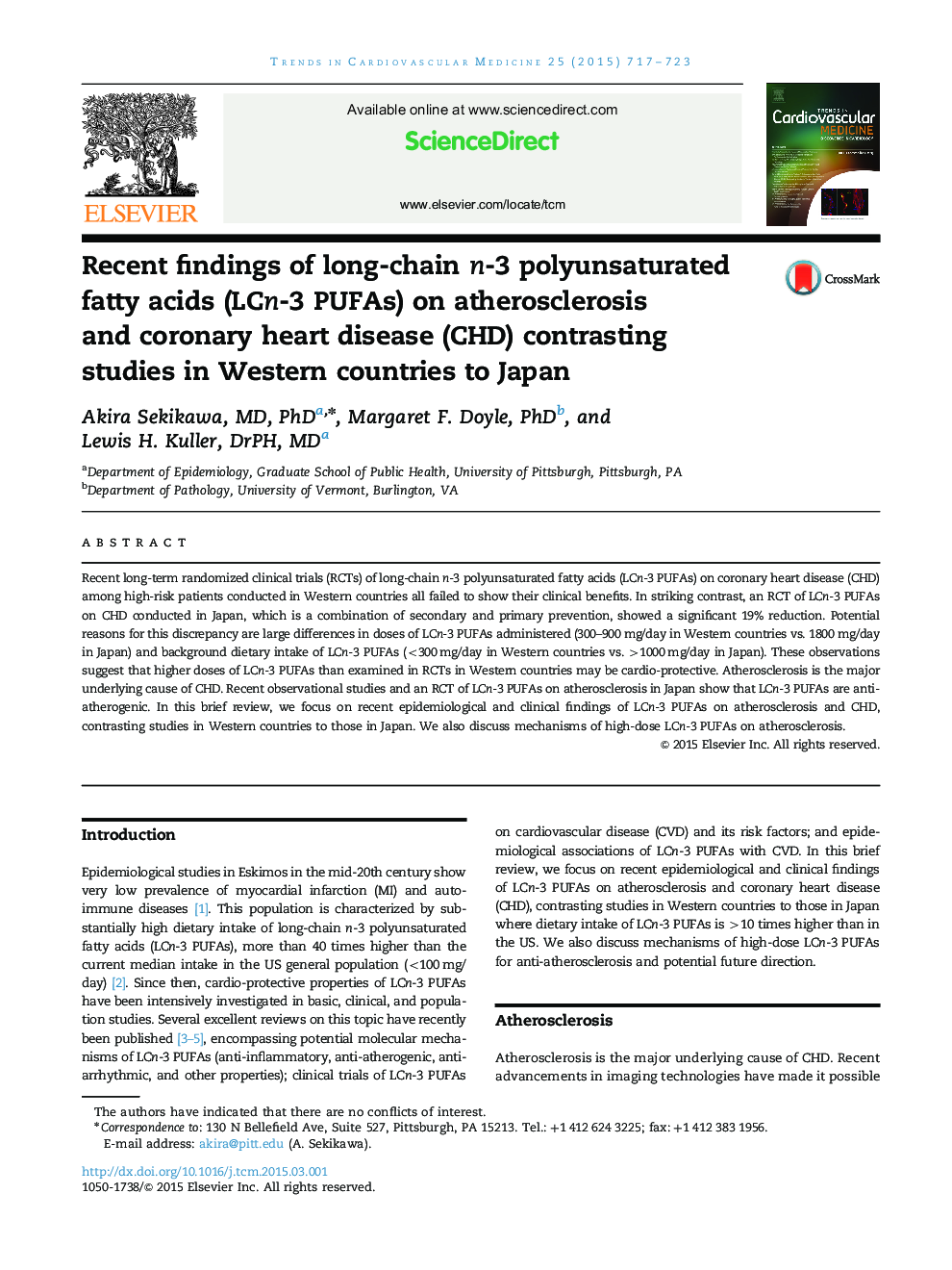| کد مقاله | کد نشریه | سال انتشار | مقاله انگلیسی | نسخه تمام متن |
|---|---|---|---|---|
| 3030431 | 1183642 | 2015 | 7 صفحه PDF | دانلود رایگان |

Recent long-term randomized clinical trials (RCTs) of long-chain n-3 polyunsaturated fatty acids (LCn-3 PUFAs) on coronary heart disease (CHD) among high-risk patients conducted in Western countries all failed to show their clinical benefits. In striking contrast, an RCT of LCn-3 PUFAs on CHD conducted in Japan, which is a combination of secondary and primary prevention, showed a significant 19% reduction. Potential reasons for this discrepancy are large differences in doses of LCn-3 PUFAs administered (300–900 mg/day in Western countries vs. 1800 mg/day in Japan) and background dietary intake of LCn-3 PUFAs (<300 mg/day in Western countries vs. >1000 mg/day in Japan). These observations suggest that higher doses of LCn-3 PUFAs than examined in RCTs in Western countries may be cardio-protective. Atherosclerosis is the major underlying cause of CHD. Recent observational studies and an RCT of LCn-3 PUFAs on atherosclerosis in Japan show that LCn-3 PUFAs are anti-atherogenic. In this brief review, we focus on recent epidemiological and clinical findings of LCn-3 PUFAs on atherosclerosis and CHD, contrasting studies in Western countries to those in Japan. We also discuss mechanisms of high-dose LCn-3 PUFAs on atherosclerosis.
Journal: Trends in Cardiovascular Medicine - Volume 25, Issue 8, November 2015, Pages 717–723